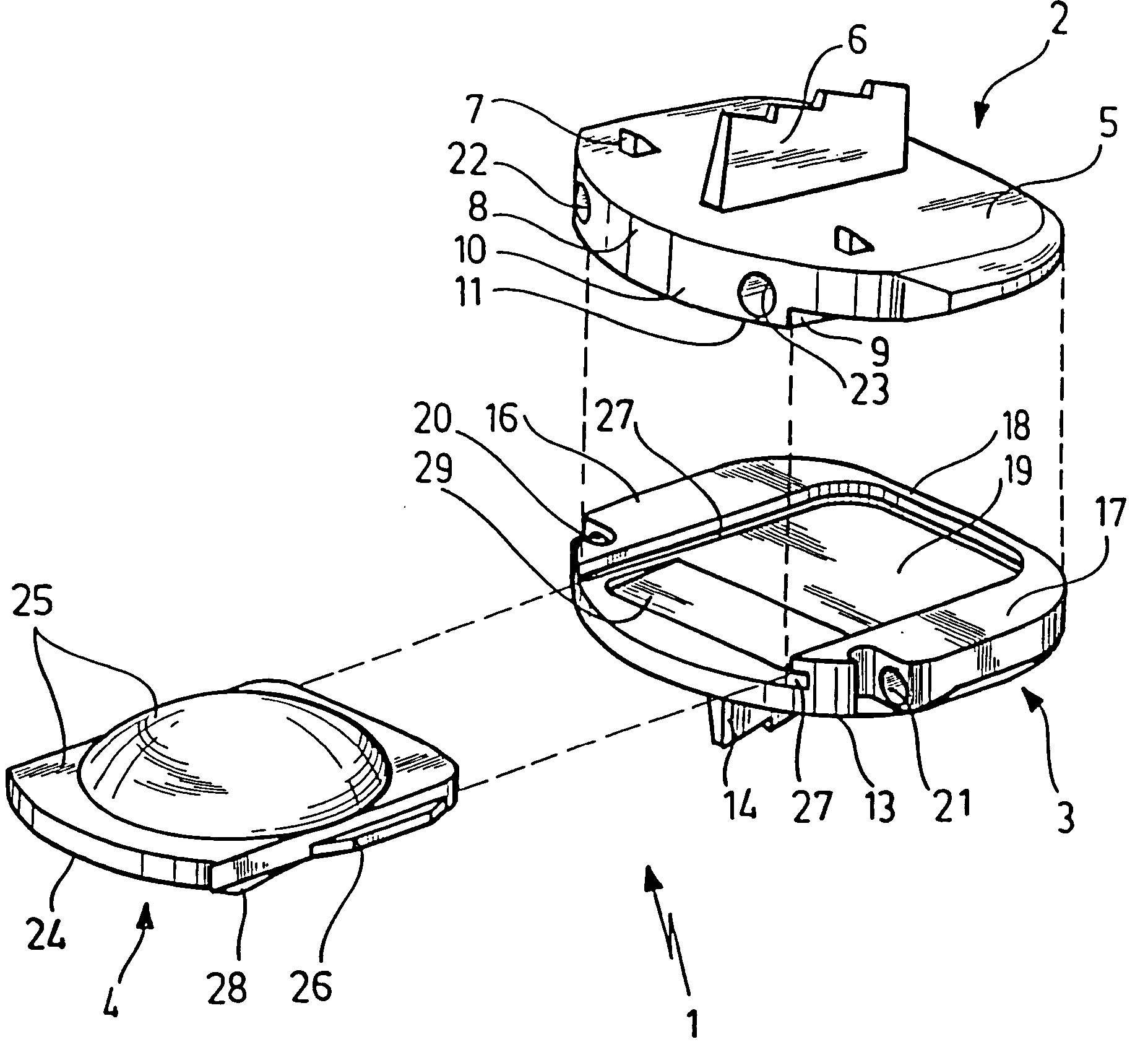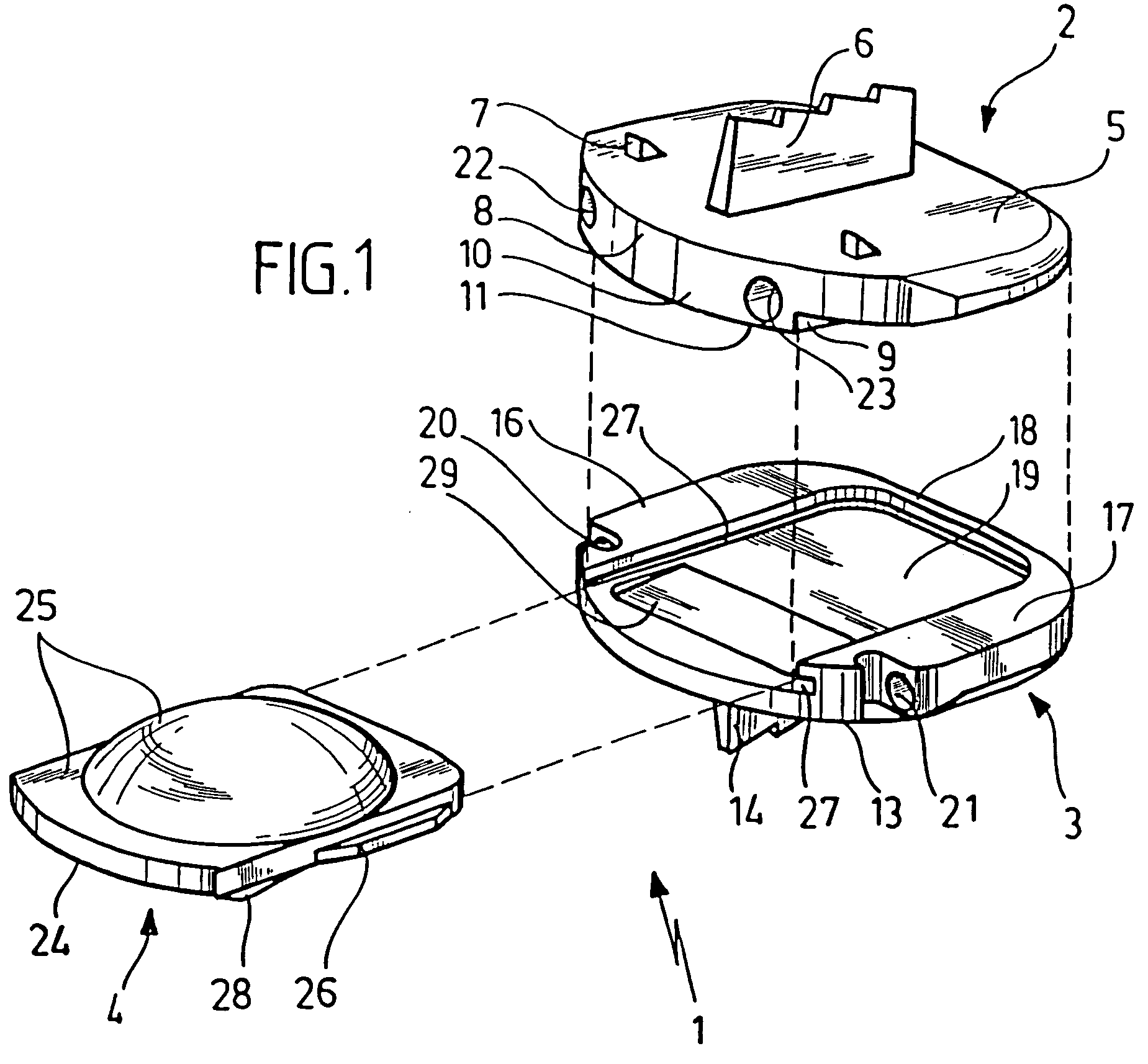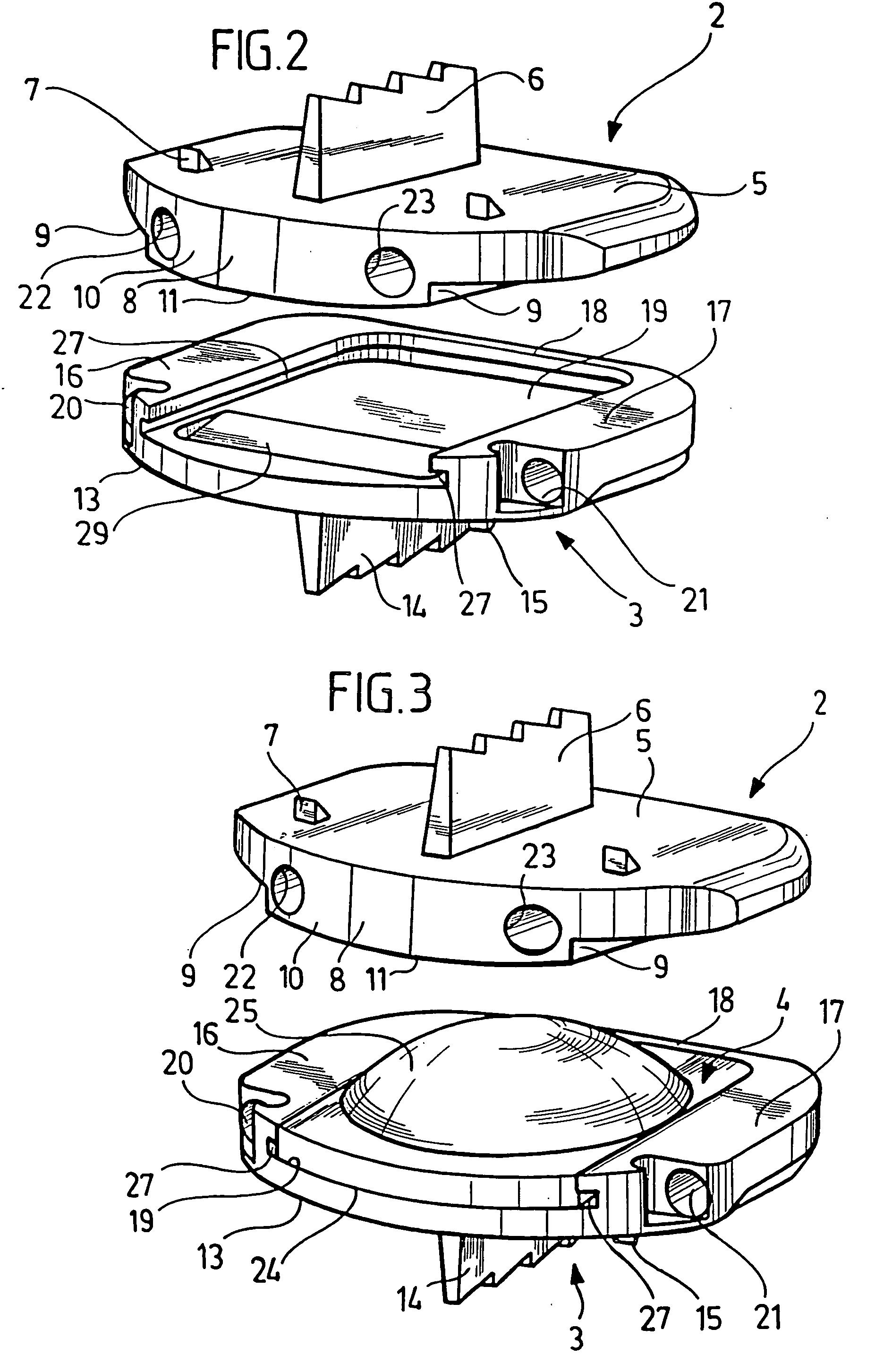Intervertebral Implant
a technology of intervertebral implants and implants, which is applied in the field of intervertebral implants, can solve the problems of presenting the risk of injury, difficulty in insertion, and difficulty, and achieve the effect of reducing the minimum structural height and facilitating the placement of the intervertebral implan
- Summary
- Abstract
- Description
- Claims
- Application Information
AI Technical Summary
Benefits of technology
Problems solved by technology
Method used
Image
Examples
Embodiment Construction
[0035] The intervertebral implant 1 shown in the drawing includes three parts, namely a platelike upper part 2, a platelike lower part 3, and a substantially platelike pivot insert 4.
[0036] The upper part 2 is embodied flat on its top, thus creating a support face 5, on which various kinds of protrusions 6, 7 are disposed which serve the purpose of anchoring the upper part 2 in a vertebra that rests, with its end face toward an intervertebral space, on the support face 5.
[0037] The upper part 2 is substantially rectangular in cross section; in the exemplary embodiment shown, a longitudinal edge 8 curves outward.
[0038] On the two short sides of this rectangle, the thickness of the platelike upper part 2 is less than in the central region, so that along the short sides of the upper part 2, downward-pointing recesses 9 each extending parallel to these edges are formed that are open toward the outside. The central region of the upper part 2 is located between the two recesses 9 and t...
PUM
 Login to View More
Login to View More Abstract
Description
Claims
Application Information
 Login to View More
Login to View More - R&D
- Intellectual Property
- Life Sciences
- Materials
- Tech Scout
- Unparalleled Data Quality
- Higher Quality Content
- 60% Fewer Hallucinations
Browse by: Latest US Patents, China's latest patents, Technical Efficacy Thesaurus, Application Domain, Technology Topic, Popular Technical Reports.
© 2025 PatSnap. All rights reserved.Legal|Privacy policy|Modern Slavery Act Transparency Statement|Sitemap|About US| Contact US: help@patsnap.com



